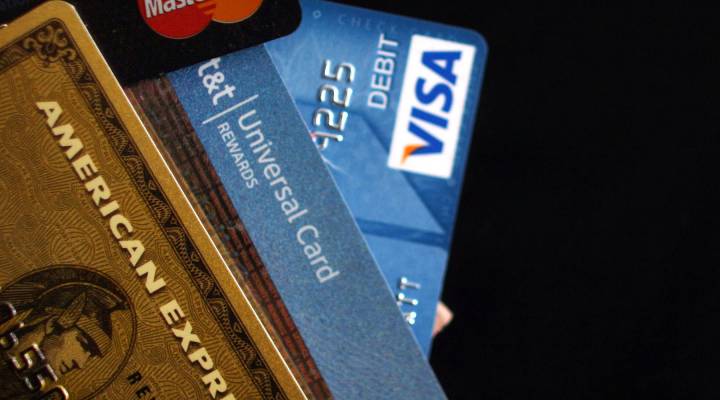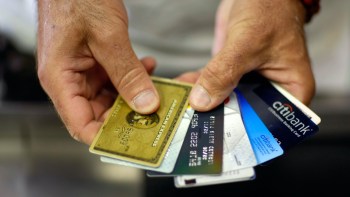
The 5 best ways to build your credit
The 5 best ways to build your credit

This week, Marketplace Weekend is all about life after college. In our series, “Graduating into the Economy,” we have stories and advice for recent grads — everything from career and credit basics to dream outfits, houseplants and homes.
If there’s a playbook for starting your financial life, starting to save and building your credit goes hand in hand with finding the right job. Credit is what allows you to rent or get a mortgage. If the idea of credit and a credit score is new, the system can seem complicated and daunting.
This week, Marketplace Weekend is talk about new graduates — a group overwhelmingly new to credit. Who better to ask about credit than the guy who’s traveled the world on points while building excellent credit for himself: Brian Kelly, the founder of The Points Guy, a site devoted to credit, and points and miles travel.
Kelly has mastered the credit game and he has some advice for new grads who are just getting started on building credit:
1. Check your score.
Even if you think you don’t have a credit score (and if you have student loans, car payments or medical bills, you may be wrong), start at a free credit checking site. You’ll want to find out what your FICO score is and get an idea of the breakdown of what makes a FICO score. A lot of your FICO score (35 percent) is determined by payment history, so if you have none, this is where you start building. Once you know your score, don’t just move forward and never check it again — keep looking! Scores go up and down, and knowing yours is important.
2. Get a credit card.
Once you have your score, it’s time to start building your credit. Kelly recommends finding a credit card with rewards categories in the areas where you spend the most: travel, groceries, restaurants, etc. From there, new cardholders will want to find a no-fee credit card to start and decide whether they’d like rewards as travel points and miles, or as cash back. Kelly says to start slow — it’s easy to get tempted by sign-up offers and spend beyond your means. Start with just one card and take things from there as you figure out what a comfortable monthly spend looks like for you.
3. Pay your bills.
Pay your bills! Pay them every month! The best way to make sure you’re not spending more than you can afford is to pay your bill off in full every month. If you’re just starting out, you might want to pay the balance off even more frequently, so that you know you’re spending money you actually have. Do this and you won’t rack up interest — and since payment history is such a crucial part of your credit score, it’s key to pay at least the minimum due every month to keep your score high.
4. Up your game.
If you’ve mastered your no-fee card, it may be time for an upgrade. Kelly says that while it may seem crazy to pay a yearly fee for a credit card, some of the rewards associated defray or completely make up the cost. If you’re planning a big trip or know you can earn a lot of cash back, it may be worth it to add a paid card to your wallet’s lineup. Adding new lines of credit can temporarily ding your credit, but in the long run, it actually raises your score.
5. Have some fun.
When you upgrade your arsenal of cards, earning rewards like cash back, miles or hotel points gets easier. A single sign up bonus can earn you a free international flight or a week long hotel stay. Spend within your means and cash in those perks as they come. You earned it!
| How to land a great job as a recent grad |
| Millenials teach credit card companies a few lessons |
| Credit card companies will negotiate with consumers, survey suggests |
There’s a lot happening in the world. Through it all, Marketplace is here for you.
You rely on Marketplace to break down the world’s events and tell you how it affects you in a fact-based, approachable way. We rely on your financial support to keep making that possible.
Your donation today powers the independent journalism that you rely on. For just $5/month, you can help sustain Marketplace so we can keep reporting on the things that matter to you.


















